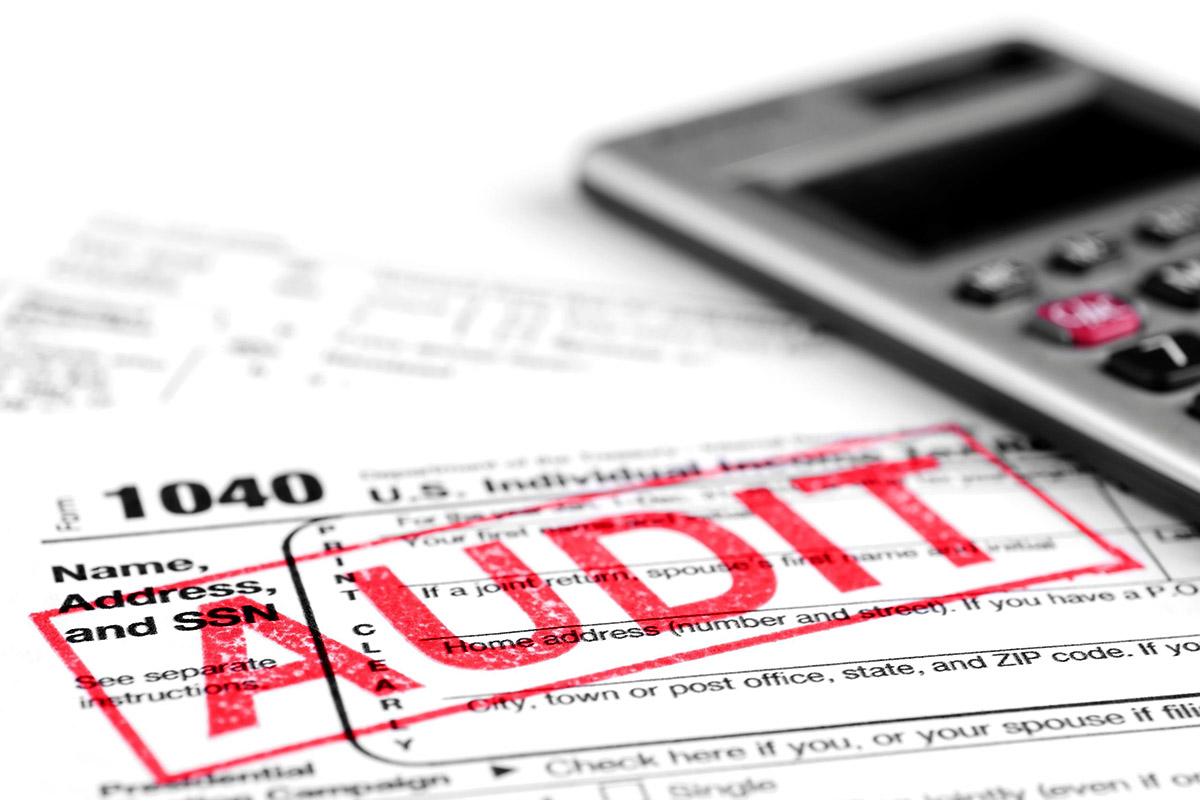Home>Finance>What Happens If You Don’t Report Cryptocurrency On Taxes


Finance
What Happens If You Don’t Report Cryptocurrency On Taxes
Published: October 5, 2023
Discover the consequences of not reporting cryptocurrency on your taxes. Learn about the potential penalties and legal implications. Take control of your finances and stay compliant.
(Many of the links in this article redirect to a specific reviewed product. Your purchase of these products through affiliate links helps to generate commission for LiveWell, at no extra cost. Learn more)
Table of Contents
- Introduction
- Understanding Cryptocurrency and Taxation
- Legal Obligations for Reporting Cryptocurrency
- Consequences of Not Reporting Cryptocurrency on Taxes
- Penalties for Failure to Report Cryptocurrency
- IRS Regulations and Enforcement Actions
- Steps to Correctly Report Cryptocurrency on Taxes
- Common Questions and Misconceptions about Reporting Cryptocurrency
- Conclusion
Introduction
Welcome to the world of cryptocurrency, where digital currencies like Bitcoin, Ethereum, and Litecoin have revolutionized the way we transact and store value. With the rise in popularity and increasing adoption of cryptocurrencies, it’s important to understand the tax implications associated with them. In this article, we will explore what happens if you don’t report cryptocurrency on taxes, the legal obligations surrounding cryptocurrency taxation, the consequences of non-compliance, and the steps to correctly report your cryptocurrency transactions.
As virtual currency gains traction, governments around the world are closely monitoring cryptocurrency transactions and introducing regulations to ensure transparency and prevent tax evasion. The Internal Revenue Service (IRS) in the United States has taken a proactive approach to cryptocurrency taxation, requiring taxpayers to report their cryptocurrency holdings and transactions.
It’s crucial to recognize that the IRS treats cryptocurrency as property for tax purposes, rather than as traditional currency. This means that any gains or losses from cryptocurrency transactions must be reported on your tax return, just like the sale of any other asset such as stocks or real estate.
However, despite the clear guidelines from tax authorities, some individuals or entities may choose not to report their cryptocurrency activities, either out of ignorance or with the intent to evade taxes. But what are the implications of not reporting cryptocurrency on your taxes?
In the following sections, we will delve into the legal obligations surrounding cryptocurrency taxation, the potential consequences of non-compliance, the penalties associated with failure to report cryptocurrency, and the steps you can take to ensure you correctly report your cryptocurrency transactions.
Understanding Cryptocurrency and Taxation
To properly comprehend the implications of not reporting cryptocurrency on your taxes, it’s important to have a solid understanding of cryptocurrency and how it is taxed.
Cryptocurrency is a digital or virtual form of currency that utilizes cryptography for secure financial transactions, control the creation of additional units, and verify the transfer of assets. The most well-known cryptocurrency is Bitcoin, but there are numerous others available in the market.
When it comes to taxation, the IRS treats cryptocurrency as property rather than currency. This means that every time you buy or sell cryptocurrency, it is considered a taxable event. Just like any other property, the sale or exchange of cryptocurrency can result in a capital gain or loss, depending on the difference between the purchase price and the fair market value at the time of sale.
In addition to capital gains, other taxable events related to cryptocurrency may include receiving cryptocurrency as payment for goods or services, mining cryptocurrency, or participating in initial coin offerings (ICOs).
It’s important to note that the IRS requires all cryptocurrency holders to maintain accurate records of their transactions, including the date, value, and purpose of each transaction. These records will be vital when it comes time to report your cryptocurrency activities on your tax return.
While the taxation of cryptocurrency may seem complex, understanding the basic principles will help you navigate the reporting process correctly and avoid potential penalties for non-compliance.
Legal Obligations for Reporting Cryptocurrency
When it comes to cryptocurrency taxation, it’s essential to understand the legal obligations surrounding the reporting of your cryptocurrency activities. The IRS has made it clear that taxpayers must report their cryptocurrency holdings and transactions, ensuring compliance with tax laws.
First and foremost, you must report any income you receive from cryptocurrency-related activities, whether it’s from mining, staking, receiving cryptocurrency as payment, or any other form of earnings. Failure to report this income can result in penalties and legal consequences.
Furthermore, if you sell or exchange cryptocurrency, you must report the resulting capital gains or losses on your tax return. This includes not only the sale of cryptocurrency for fiat currency (such as USD) but also the exchange of one cryptocurrency for another. It’s crucial to accurately calculate your gains or losses using the fair market value of the cryptocurrency at the time of the transaction.
In addition, if you use cryptocurrency to purchase goods or services, the value of the cryptocurrency at the time of the transaction needs to be reported, as it may be considered a taxable event.
It’s important to note that the IRS has not introduced any specific forms for reporting cryptocurrency transactions at this time. However, they have provided guidance on how to report cryptocurrency-related activities on existing tax forms, such as Schedule D (Capital Gains and Losses) and Form 1040 (U.S. Individual Income Tax Return).
It’s crucial to maintain well-organized and accurate records of your cryptocurrency transactions, including dates, values, and purposes, in order to properly report them on your tax return. These records will help you demonstrate your compliance with tax laws if you are ever audited by the IRS.
While the legal obligations for reporting cryptocurrency may seem daunting, it’s important to fulfill your responsibilities as a taxpayer to avoid potential penalties and legal issues.
Consequences of Not Reporting Cryptocurrency on Taxes
Choosing not to report cryptocurrency on your taxes can have serious consequences. Tax authorities around the world, including the Internal Revenue Service (IRS) in the United States, are actively monitoring and cracking down on non-compliance in the cryptocurrency space. Here are some of the potential consequences you may face if you fail to report your cryptocurrency activities on your taxes:
- Audit and Penalties: If the IRS suspects that you have not reported your cryptocurrency transactions, they may choose to audit your tax return. This could result in additional taxes, penalties, and interest. The penalty for underreporting income can be as high as 75% of the underpayment.
- Legal Consequences: Intentional failure to report cryptocurrency transactions on your taxes can be viewed as tax evasion, which is a criminal offense. If convicted, you may face fines and even imprisonment.
- Lifetime Tax Liability: When you fail to report cryptocurrency transactions, the statute of limitations for the IRS to assess additional taxes does not start. This means that the IRS can potentially go back indefinitely to audit and assess taxes on unreported cryptocurrency activities, leaving you with a lifetime tax liability.
- Loss of Benefits: Not reporting cryptocurrency correctly can also lead to the loss of certain tax benefits and deductions. For example, if you incur cryptocurrency losses but do not report them, you will miss out on the opportunity to offset these losses against your other taxable income.
- Reputation Damage: Being found guilty of tax evasion or non-compliance can tarnish your personal and professional reputation. It can lead to difficulties in obtaining loans, credit, or even employment opportunities.
Given the severe consequences of not reporting cryptocurrency on your taxes, it is imperative to understand and fulfill your tax obligations as a cryptocurrency holder. It is always better to be transparent and compliant than to face the potential legal and financial repercussions of non-compliance.
Penalties for Failure to Report Cryptocurrency
Failure to report cryptocurrency transactions on your taxes can result in various penalties imposed by tax authorities. The penalties for non-compliance can be significant and are meant to deter taxpayers from neglecting their reporting obligations. Here are some of the penalties you may face if you fail to report your cryptocurrency activities:
- Accuracy-related Penalties: If the IRS determines that you made a substantial understatement of your tax liability by not reporting your cryptocurrency transactions, you may be subject to an accuracy-related penalty. The penalty is typically 20% of the underpayment resulting from the understatement.
- Failure-to-file Penalty: If you neglect to report your cryptocurrency activities on your tax return altogether, the IRS may impose a failure-to-file penalty. This penalty is calculated based on the amount of tax owed and is charged for each month or partial month that the return is not filed, up to a maximum of 5 months.
- Failure-to-pay Penalty: If you report your cryptocurrency activities on your tax return but fail to pay the taxes owed, the IRS may impose a failure-to-pay penalty. This penalty is calculated as a percentage of the unpaid tax amount and accrues monthly until the full tax liability is paid.
- Interest Charges: In addition to the penalties mentioned above, the IRS will also assess interest on any unpaid taxes. The interest is typically calculated from the due date of the return until the tax is paid in full and is compounded daily.
- Criminal Penalties: In cases of intentional tax evasion or fraud, the consequences can be even more severe. Taxpayers who knowingly fail to report their cryptocurrency transactions may face criminal charges, leading to fines and imprisonment.
It’s important to understand that the penalties for failure to report cryptocurrency can vary depending on the circumstances and the amount of unreported income. It’s crucial to consult with a tax professional to ensure compliance with tax laws and avoid the potential penalties associated with non-compliance.
IRS Regulations and Enforcement Actions
The Internal Revenue Service (IRS) has been increasingly focused on ensuring compliance in the world of cryptocurrency. They have introduced regulations and taken enforcement actions to tackle the issue of non-compliance. Here are some key aspects of IRS regulations and their enforcement actions regarding cryptocurrency reporting:
Guidance on Cryptocurrency: The IRS has provided guidance on the tax treatment of cryptocurrencies through several documents, including Notice 2014-21 and Revenue Ruling 2019-24. These guidelines clarify that cryptocurrencies are treated as property for tax purposes and the tax obligations associated with holding, selling, and using cryptocurrency.
Reporting Requirements: The IRS requires taxpayers to report their cryptocurrency transactions, including income from cryptocurrency mining, buying and selling cryptocurrency, and using cryptocurrency for purchases. It’s important to note that even if the cryptocurrency transaction occurs outside of a U.S. exchange or involves a foreign entity, it is still subject to reporting obligations for U.S. taxpayers.
Form 1099-K and Form 1099-B: In an effort to enhance compliance, some cryptocurrency exchanges and payment processors issue Form 1099-K or Form 1099-B to account holders. These forms detail the taxpayer’s cryptocurrency transactions, aiding in the reporting process. However, the lack of an issued form does not relieve the taxpayer from their reporting obligations.
Enforcement Actions: The IRS has taken steps to enforce compliance in the cryptocurrency space. In July 2019, the IRS announced a Virtual Currency Compliance Campaign, targeting taxpayers who have not been reporting cryptocurrency transactions accurately. The campaign aims to address non-compliance through a combination of outreach efforts, examinations, and criminal investigations.
Data Analytics and Blockchain Forensics: The IRS has also invested in data analytics and blockchain forensics tools to identify taxpayers who may be underreporting or neglecting their cryptocurrency activities. These tools help analyze blockchain transactions and trace cryptocurrency movements, assisting in identifying non-compliance.
International Cooperation: The IRS has collaborated with tax authorities from other countries to combat tax evasion and non-compliance related to cryptocurrency. These partnerships facilitate the exchange of information and ensure a global approach to enforcing compliance in the cryptocurrency industry.
It’s important to stay informed about the evolving regulations and enforcement actions related to cryptocurrency taxation. Failing to comply with IRS regulations can lead to penalties, interest, and potentially criminal charges. It’s advisable to consult with a tax professional who has expertise in cryptocurrency taxation to ensure compliance with IRS regulations and reporting requirements.
Steps to Correctly Report Cryptocurrency on Taxes
Reporting your cryptocurrency transactions correctly on your tax return is crucial to ensure compliance with tax laws. Here are the essential steps to follow to accurately report your cryptocurrency activities:
- Keep Detailed Records: Maintain thorough records of all your cryptocurrency transactions, including dates, values, and purposes. This documentation will be crucial when calculating your gains or losses and reporting them on your tax return. Utilize digital wallets and cryptocurrency tracking platforms to help streamline and organize your records.
- Calculate Your Gains and Losses: Determine the cost basis and fair market value of each cryptocurrency transaction. Calculate the difference between the purchase price and the fair market value at the time of the transaction to determine your capital gains or losses. Use reputable cryptocurrency exchanges and historical data to accurately determine fair market values.
- Report on Schedule D: Use Schedule D (Capital Gains and Losses) to report your cryptocurrency transactions. Include a detailed breakdown of each transaction, including the date acquired, date sold or exchanged, purchase price, sale price, and resulting gain or loss. Report short-term transactions (held for less than one year) and long-term transactions (held for more than one year) separately.
- Report on Form 8949: If you have multiple cryptocurrency transactions, you may need to use Form 8949 to provide a summary of these transactions to accompany Schedule D. Use separate sections for short-term and long-term transactions, and ensure the information matches the details on your Schedule D.
- Pay Attention to Foreign Exchanges: If you use foreign cryptocurrency exchanges, ensure you report those transactions as well. The IRS has specific reporting requirements for foreign financial accounts, including cryptocurrency exchanges. Familiarize yourself with the necessary reporting forms (such as FBAR) and comply with the disclosure requirements.
- Consider Specific Circumstances: Depending on your cryptocurrency activities, you may need to report additional forms, such as Form 1040 (U.S. Individual Income Tax Return) or Schedule C (Profit or Loss from Business) if you earned cryptocurrency as self-employment income or from mining activities. Consult with a tax professional to determine the appropriate forms for your specific circumstances.
- Seek Professional Guidance: Cryptocurrency taxation can be complex, so it’s advisable to seek the assistance of a tax professional who specializes in cryptocurrency. They can help ensure that you accurately report your cryptocurrency transactions and comply with all relevant tax laws and regulations.
It’s important to stay up to date with the latest IRS guidance and regulations regarding cryptocurrency reporting. Failure to report your cryptocurrency transactions correctly can lead to penalties and legal consequences. By following these steps and seeking professional advice, you can ensure compliance and peace of mind when it comes to reporting cryptocurrency on your taxes.
Common Questions and Misconceptions about Reporting Cryptocurrency
As cryptocurrency continues to grow in popularity, many individuals have questions and misconceptions about reporting cryptocurrency on their taxes. Let’s address some of the common questions and clarify misunderstandings:
1. Is every cryptocurrency transaction taxable?
No, not every transaction is taxable. Certain transactions, such as buying and holding cryptocurrency, may not incur immediate tax obligations. However, transactions like selling, exchanging, or using cryptocurrency for purchases are considered taxable events.
2. Do I need to report cryptocurrency if I didn’t make any profits?
Yes, you are still required to report your cryptocurrency transactions even if you didn’t make a profit. The IRS requires you to report the value of the cryptocurrency at the time of the transaction, regardless of whether it resulted in a gain or loss.
3. Can I rely on tax forms issued by cryptocurrency exchanges?
While it’s helpful to receive tax forms like Form 1099-K or Form 1099-B from cryptocurrency exchanges, you should not solely rely on these forms. It’s your responsibility to maintain accurate records and report your cryptocurrency transactions correctly, regardless of whether you receive these forms or not.
4. Can I use like-kind exchange rules for cryptocurrency?
As of tax year 2018, the like-kind exchange rules no longer apply to cryptocurrency transactions. This means that exchanging one cryptocurrency for another is considered a taxable event and must be reported accordingly.
5. Can I amend a previously filed tax return to report cryptocurrency?
If you failed to report cryptocurrency on a previously filed tax return, you can amend the return to include the necessary information. File an amended tax return using Form 1040X and report your cryptocurrency transactions with the updated information.
6. Can I deduct cryptocurrency losses?
Yes, you can deduct cryptocurrency losses on your tax return. Cryptocurrency losses can be used to offset any capital gains you may have. If your losses exceed your gains, you can use the remaining losses to offset other taxable income, subject to certain limitations.
7. What happens if I don’t report my cryptocurrency transactions?
Failure to report cryptocurrency transactions can have serious consequences, including penalties, interest, and potential legal actions. The IRS is actively cracking down on non-compliance in the cryptocurrency space and pursues cases of tax evasion. It’s important to fulfill your reporting obligations to avoid these consequences.
Keep in mind that the cryptocurrency taxation landscape is continually evolving, and it’s crucial to stay informed about the latest IRS guidance and regulations. Seeking guidance from a tax professional who specializes in cryptocurrency taxation is advisable to ensure accurate reporting and compliance with tax laws.
Conclusion
Properly reporting cryptocurrency on your taxes is not just a legal obligation, but also a responsible and necessary step to ensure compliance with tax laws. Failing to report cryptocurrency transactions can have serious consequences, including penalties, interest charges, and even criminal charges for tax evasion.
Understanding the complexities of cryptocurrency taxation, such as the classification of cryptocurrency as property and the various taxable events, is crucial. Keeping detailed records of your transactions, accurately calculating gains and losses, and reporting them correctly on your tax return are essential steps in fulfilling your reporting obligations.
It is also important to stay updated with IRS regulations and enforcement actions regarding cryptocurrency taxation. The IRS is actively monitoring non-compliance in the cryptocurrency space, using advanced data analytics and partnerships with tax authorities worldwide.
Consulting with a tax professional who specializes in cryptocurrency can provide valuable guidance and ensure compliance with reporting requirements. They can help you navigate the complexities of cryptocurrency taxation, clarify any misconceptions, and assist you in correctly reporting your cryptocurrency activities.
Remember, it is always better to be transparent and compliant when it comes to reporting cryptocurrency on your taxes. By doing so, you can avoid potential penalties, legal consequences, and reputation damage. Stay informed, keep accurate records, and seek professional advice to ensure a seamless and compliant approach to cryptocurrency taxation.














